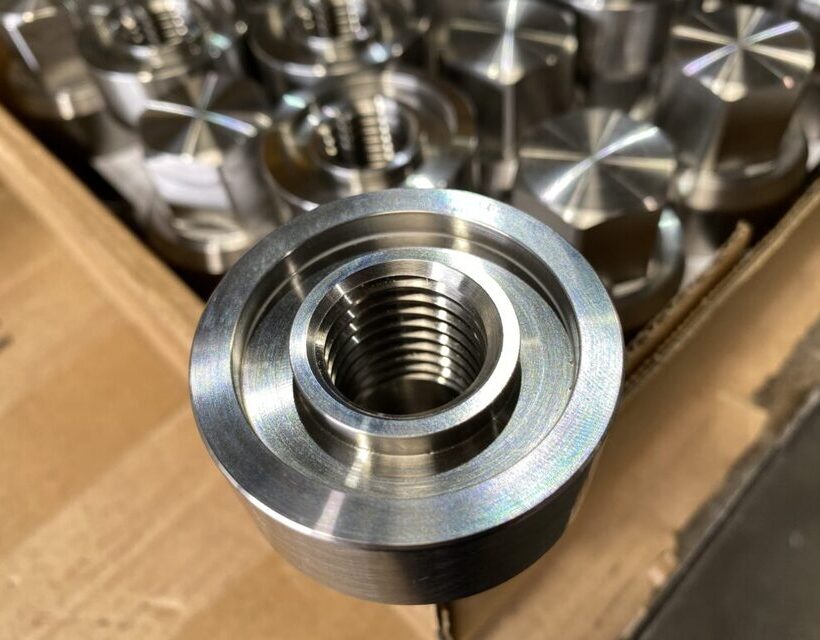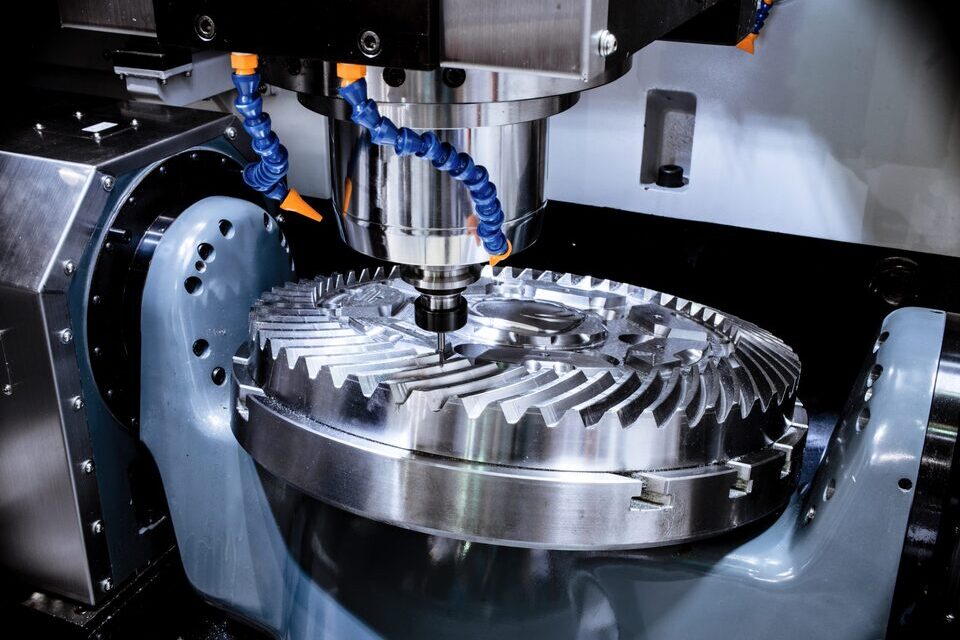You're always looking for the best way to get parts manufactured, right? Of course you are.
And if you've been wondering which is better – machined parts or molded – then you're in luck!
Machining is far and away the superior option, and we'll show you why!
By the time you finish reading this article, you'll be convinced that machined parts are the only way to go.
Trust us when we say that your life won't be complete until you've experienced the incredible advantages of machined parts over molded ones.
So don't wait any longer; find out why machining is king of manufacturing today!
Precise Control Over Dimensions
When it comes to precise control over dimensions, machined parts provide the utmost accuracy - allowing manufacturers to build components that are the exact size they need. The precision provided by machined parts allows manufacturers to create components that have much higher tolerance levels than those produced with molded materials. This is essential in a variety of industries, from medical equipment and aerospace engineering to automotive manufacturing.
With the ability to produce complex shapes and sizes with extreme precision, machined parts offer a level of customization that molded materials simply can't match. What's more, machining processes can be easily modified if design changes are necessary - giving manufacturers more flexibility when building products for their customers.
This level of control and precision ensures that your product will look and function exactly as expected when delivered - ultimately providing you with peace of mind that your project will meet all requirements and specifications.
High-Quality Finish

A machined part has a much smoother, higher-quality finish than if it were molded. This is because the machines used in the process are highly accurate and can produce parts with extraordinary precision and repeatability.
Here are three reasons why machining is preferred for achieving a superior finish:
- The cutting tools used in machining have finer edges, allowing them to leave a smoother surface on the part.
- Machines can work with a variety of materials, forming shapes that would be impossible through molding processes.
- Machining allows for adjustments during the process. Corrections or design changes can be made quickly and easily without having to start from scratch as with molding processes.
Overall, machining offers advantages over traditional molding processes in producing high-quality parts with intricate details and an excellent finish — something that cannot be achieved by other means without sacrificing quality and accuracy.
Ability to Create Complex Geometries
You'll be amazed at the complexity of shapes and geometries that can be achieved with machining. Some parts require up to 300 different operations! Machined parts have a higher level of precision and accuracy when compared to molded parts. With multiple tools available for machining, such as lathes, milling machines, and grinders, intricate shapes and contours can be created with ease.
The end result is complex pieces that are consistent in quality and design. Machining also allows certain materials like metals to be cut into any desired shape or size, making it an ideal choice when creating intricate geometries that cannot be achieved through molding processes.
Furthermore, manufacturers can create complex geometries quickly without sacrificing quality or accuracy by using computer-controlled machining techniques. All these advantages make choosing machined parts over molded a wise decision indeed!
Tight Tolerances
You need parts with exact precision? Machining offers the capability to create parts with incredibly tight tolerances, making it a great option for high precision applications.
When you opt for machined components over molded ones, you can rest assured that your product will always be within the narrowest of ranges for accuracy and precision. This is especially important if your product needs to meet certain industry standards or requires exact measurements in order to function properly. By choosing machined components, you can have peace of mind that your products will meet all necessary specifications and perform at their best.
In addition, machining allows for more control over how much material is removed from the part during production, ensuring that only what's needed is taken away without sacrificing any precision along the way. With this added level of control and accuracy, you can be sure that every part produced will be identical in size and shape – no matter the complexity of its geometry.
With machined parts, there's no room for mediocrity: each one meets the same strict standards as any other! So if you want perfection when it comes to precision components – look no further than machining!
Lower Risk of Defects

When it comes to machining, one major benefit is the reduced risk of defects compared to other manufacturing methods. With machined parts, you have a greater degree of control over your product's final shape and size due to tight tolerances, which in turn reduces the chance for faulty end products.
Here are some additional reasons why machined parts yield lower defect rates than molded components:
- Machining can provide higher precision levels because of its ability to precisely cut away material from a block;
- The process often requires less finishing work after the part has been made;
- Parts are usually manufactured in smaller batches with more consistent results;
- Automation options allow for high-quality parts with fewer human errors; and
- Each finished part receives individual attention throughout the entire machining process.
By switching from molded parts to those that are machined, you can reduce your risk of defective products while still getting superior quality components. You can also be sure that each part will meet exact specifications and requirements, allowing you to trust that your customers will get products they can rely on for years to come.
Cost Savings
By investing in machined parts, you can save money in the long run. Not only do you avoid the cost of molding, but machining is generally more efficient than other production methods.
It's faster to produce a part with fewer errors and less waste material, so you won't have to worry about producing excess components that could be costly to dispose of. Additionally, machined parts require less labor-intensive post-processing than molded parts, which can save even more time and money in the long run.
You also don't have to invest as much up front with machining compared to other manufacturing processes such as injection molding — an important consideration for many businesses. With machined parts, there's no need for tooling or dies; all that's required is a single setup fee for the program needed to manufacture your component.
This allows you to keep costs down while still producing high-quality results quickly and efficiently. Investing in machined parts may seem like it would be expensive at first glance — but when you factor in all the savings it brings over time, it's easy to see why this option should be seriously considered!
Eco-Friendly

Investing in machined parts not only saves you money but also helps to reduce your carbon footprint. Compared to molded parts, machined parts require less energy and materials during production, which means a lower impact on the environment.
By choosing machined parts over molded ones, you can take part in reducing greenhouse gas emissions and other pollutants that come from industrial processes. They usually don't require additional chemicals or coatings for assembly or operation, making them even more eco-friendly!
Buying machined parts can help create a healthier and safer workplace environment for employees by eliminating exposure to toxins and hazardous waste associated with molding processes.
When it comes to disposing of used components at the end of their lifecycle, machined metal is often easier and more effective to recycle than plastic products.
So if you're looking for an environmentally responsible way to meet your needs while saving some money too, machining may be the answer!
Short Lead Time
Opting for machined parts can help reduce lead times, as they require less preparation and production time than molded parts. Having the ability to access machined parts quickly can be an invaluable asset to any business.
Not only does it save precious time, but it also allows businesses to get their products out quicker into the hands of consumers. You'll no longer have to wait days or weeks for a product to be ready--it could be ready in just a few hours!
With a shorter lead time, you can take on more projects at once and even give your customers faster delivery times. This not only increases customer satisfaction but also makes your business more efficient overall.
Conclusion
You may be wondering why machined parts are the better option over molded. The answer is simple - precision, quality, and cost-effectiveness.
Not to mention, it's also eco-friendly and has a short lead time! With all these advantages, you'd think it would be easy to choose machined parts.
But ironically, it's not always the case. Many people still opt for molded parts due to their lower cost upfront but fail to realize they're sacrificing quality and accuracy for an inferior product in the long run.
In the end, only you can decide what works best for your needs. But if you want a superior product, then machined is definitely the way to go!
